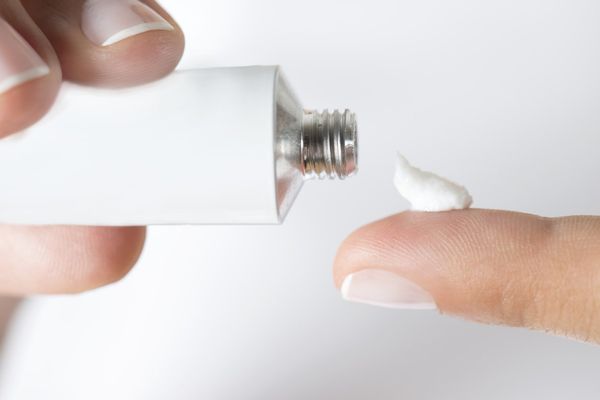A (younger) friend of mine recently began having debilitating hot flashes and night sweats. She's in her mid-40s and was caught by surprise when her doctor told her she was beginning her menopause transition.
With two young children under the age of 10, she thought menopause would come much later— "like, when they're in high school or college!" she moaned.
Well, um, no, I said, not for everyone.
The menopause transition, aka perimenopause, is the beginning of the march toward menopause, which is "official" once you've gone without periods for 12 consecutive months. Perimenopause is when hormones begin to fluctuate, and your period (and moods) become erratic. You may miss one month (or two), or your flow may become heavier than normal (or lighter).
Perimenopause begins several years before your last menstrual period, but there's no predicting how long you'll be in that state. The journey can last anywhere from three to 10 years.
While the average age of menopause is somewhere around 51, the fact is that it can happen much earlier—or much later—than that. When it happens in a woman younger than 40, it's known as premature menopause. But the most common age range for menopause is from 48 to 55. One expert I spoke with likened this time to "puberty in reverse."
"I wish there was some sort of guide for menopause," my friend whined, madly swiping at her forehead with a tissue, which in no time had disintegrated into limp, wet shreds of fiber. She told me she was frustrated by all the information out there, yet didn't know where to focus first. (And in case you were wondering? Yes, focus and fuzzy thinking can be a problem once menopause hits.)
Menopause 101
Hot flashes and night sweats
- These sudden, uncomfortable hot spells occur in about 80 percent of women going through menopause.
- You'll know when you're getting one—they're pretty distinctive. Look for a sudden sensation of heat that hits your face, chest and head. The heat can also feel like it's traveling downward to the tips of your toes or upward (you'll swear you're blowing steam out of your ears).
- Hot flashes can be mild or severe or somewhere in between.
- They generally last for one to five minutes.
- Some women may get one or two hot flashes each week; others will get one or two each hour.
- Sometimes, women experience a rapid heartbeat during a hot flash, after which they may also get chilled.
- Hot flashes may go away on their own after 6 to 24 months. Yet, for some women, they can last for many years. Occasionally, they're with you for life (sorry!).
- It's not unusual, during a night sweat, to have to change your nightgown or even your sheets—yes, they can get soaked! It helps to keep your room cool, keep a glass of ice water by your bedside and dress lightly (or not at all).
Vaginal dryness and painful intercourse
- Blame the waning hormones estrogen and progesterone for affecting the layer of moisture that keeps your vagina thick, elastic, moist, lubricated and healthy.
- As a result, you—like one in three women—may feel itching, irritation, stinging, burning and pain during everyday activities.
- Sex can hurt, too, but ironically, it can also help keep the vagina lubricated because it can increase blood flow to the area.
- If it's too painful and/or you are generally uncomfortable, you might want to seek out over-the-counter moisturizers and lubricants or prescription estrogen preparations. Learn more about what you can do about painful sex.
Anxiety, depression, mood swings
- It's not your imagination that you're feeling like you could tear someone's head off. The fluctuation of estrogen and progesterone is responsible for feeling happy-sad-happy-sad.
- Although any woman can experience these feelings, they're more likely if you've had anxiety or postpartum depression or PMS (premenstrual syndrome) or PMDD (premenstrual dysphoric disorder) in the past.
- Some women begin to get full-blown panic attacks during this time.
- As your hormones level out, things usually improve. In the meantime, medication or talk therapy or a combination of both, along with healthy lifestyle habits, can help.
Weight gain
- Eating less but weighing more? It might be time to ramp up the exercise to help your lagging metabolism, which becomes more sluggish around this time.
- Fat likes to gather around your waist, a condition lovingly termed "menopot." That's because our muscles lose tone, making it easier for our waistlines to expand. Hormonal changes also play a role in fat accumulation in the belly area.
- It's not just menopause that causes weight gain, though. Weight gain is also associated with aging, lifestyle and genetic factors. Find out more about weight gain in menopause and how to combat it with diet and exercise.
Sleep problems
- Your sleep may be interrupted countless times each night from night sweats. Learn more about the connection between menopause and sleep.
- Hormonal fluctuations make both falling and staying asleep difficult.
- The National Sleep Foundation reports that frequent insomnia affects 61 percent of perimenopausal and menopausal women.
- Meditation, deep breathing or listening to relaxing music can help.
How to cope—here's how some women do it:
- Exercise regularly
- Eat a healthy diet
- Use guided imagery and meditation
- Try acupuncture
- Avoid triggers like spicy foods, hot beverages and alcohol
- Take black cohosh
- Talk to your health care provider about hormone replacement therapy
- Also talk to your health care provider about low-dose antidepressants (like fluoxetine [Prozac]) or birth control pills
- Eat soy (from whole foods, not supplements)
- Practice yoga
More Reading:
Menopause and Anxiety: What's the Connection?
Is Your Thyroid Making You Gain Weight?
Do More Hot Flashes Mean Mood Woes During Menopause?
- Top 10 Menopause Symptoms ›
- How To Talk to Your Healthcare Provider About Menopause ›
- Is It Menopause or Something Else? ›
- Menopause and Sleep: What's the Connection? - HealthyWomen ›
- How to Have the Best Sex of Your Life After Menopause - HealthyWomen ›
- The Role of Nurse Practitioners in Women’s Health: Menopause - HealthyWomen ›
- Could It Be the Transition to Menopause? - HealthyWomen ›







